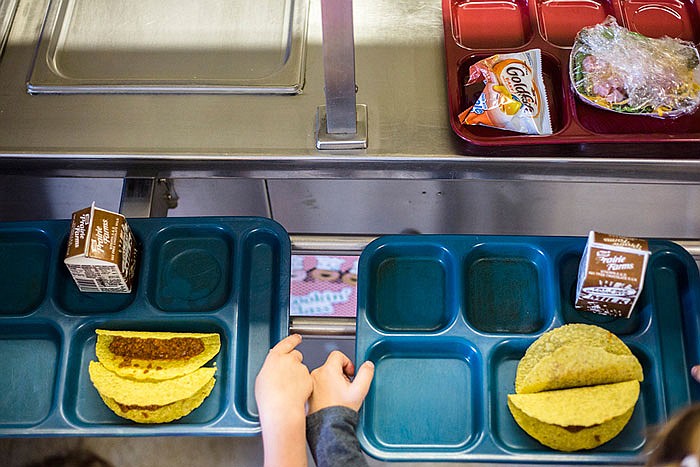The last day of school can also be the last day of regular meals for thousands of children in Jefferson City and Cole County.
Summer feeding programs, both sponsored by public and private entities, help alleviate hunger for children facing food insecurity while school's out.
Jefferson City Public Schools (JCPS) prepares breakfast and lunch for not only summer school students but also any child who walks through one of its participating buildings. The U.S. Department of Health provides funding for summer feeding programs nationwide. The Missouri Department of Health and Senior Services administers the funds.
About 85 percent of Cole County students participate in the National School Lunch Program (NSLP), which offers breakfast and lunch at reduced costs or for free. Among JCPS students, nearly 60 percent use the program.
"If we're feeding them two meals during the school year, where are they going to eat in the summer?" said Terri Ferguson, director of food service.
During summer 2015, JCPS served about 28,000 breakfasts and 33,000 lunches throughout the program's 20-day period. Ferguson anticipates more children will be fed this year because the district has expanded its summer school offering to more students in response to districtwide performances.
"In light of our achievement being in the bottom third of the state and with an APR of 70.7 percent, we feel many families could benefit from the provision of a structured focus during the summer and allow us to continue to develop skills in the areas of reading, writing and math," said Amy Berendzen, JCPS spokeswoman.
Nearly 2,000 students participated in summer school following the regular 2014-15 school year. As of Thursday, 2,627 students were enrolled in the K-12 summer school program, according to Amy Cook, JCPS enrollment specialist.
Ferguson, a 30-year employee with the district, said she's observed participation in NSLP increasing at faster and larger rates annually over the past 15 years. When she started with JCPS three decades ago, Ferguson said the percentage was in the low 20s.
Though these higher rates may signal more low-income families in the area, Ferguson said participation in the program allows the district to purchase high-quality foods and produce at affordable prices. Nutrient-rich meals increase alertness in the classroom, and if children go hungry over the summer, Ferguson said, they may "fall through the cracks."
"You have to meet their basic needs before they can learn," she said.
The last day of school for JCPS is Thursday. Schools will serve breakfast and lunch Monday-Thursday, May 31-June 23.
When the district's summer feeding program ends, another starts.
The Food Bank of Central and Northeast Missouri will begin distributing lunches at four Jefferson City locations starting June 27, going until Aug. 17.
Sack lunches - containing sandwiches, milk and produce - will be available from 12-1 p.m. at the playground on the 1,000 block of Buena Vista Street, Elston Acres Trailer Park, Second Christian Church and the Westview Heights cul de sac at Collier Court. Children can have seconds if they like, and accompanying adults may request a lunch if all the children have been fed.
Last year, the Food Bank served 4,088 children.
Travis Sappington, regional coordinator for the Buddy Pack Program, which feeds children over the weekend, said the summer feeding program is "important and vital" to continuously fighting childhood hunger.
"Kids who are (food insufficient) may not know where their next meal is coming from," he said, "so giving them food to sustain them through is so important."


